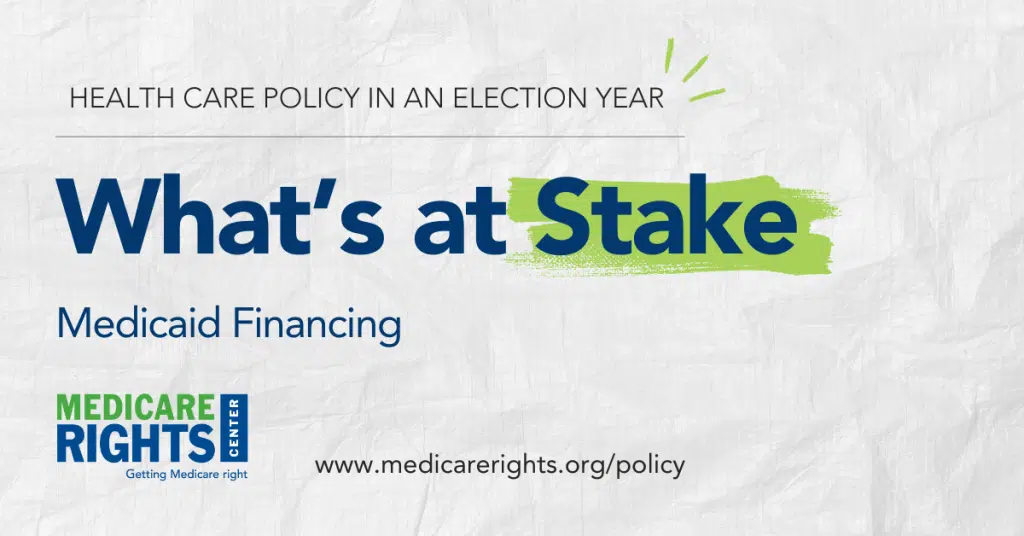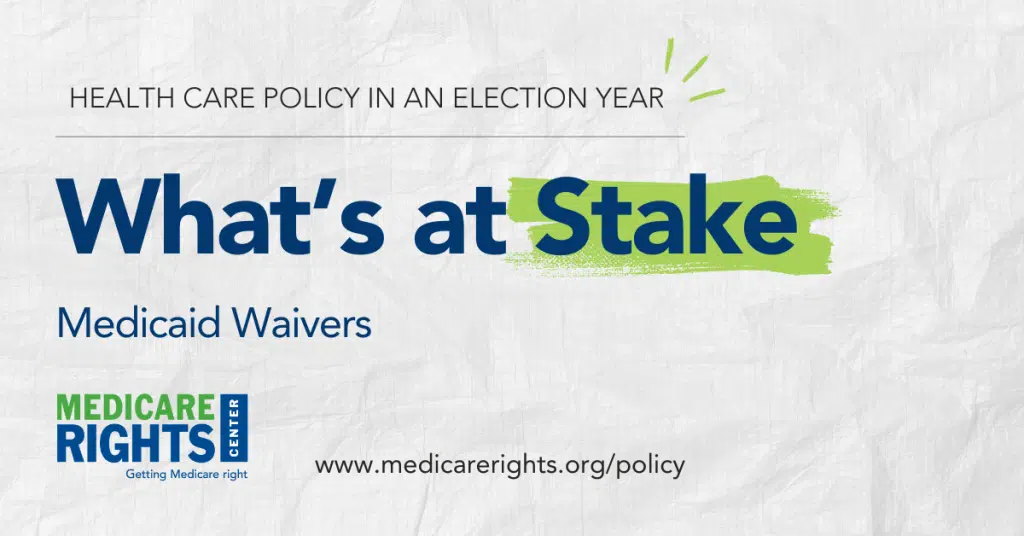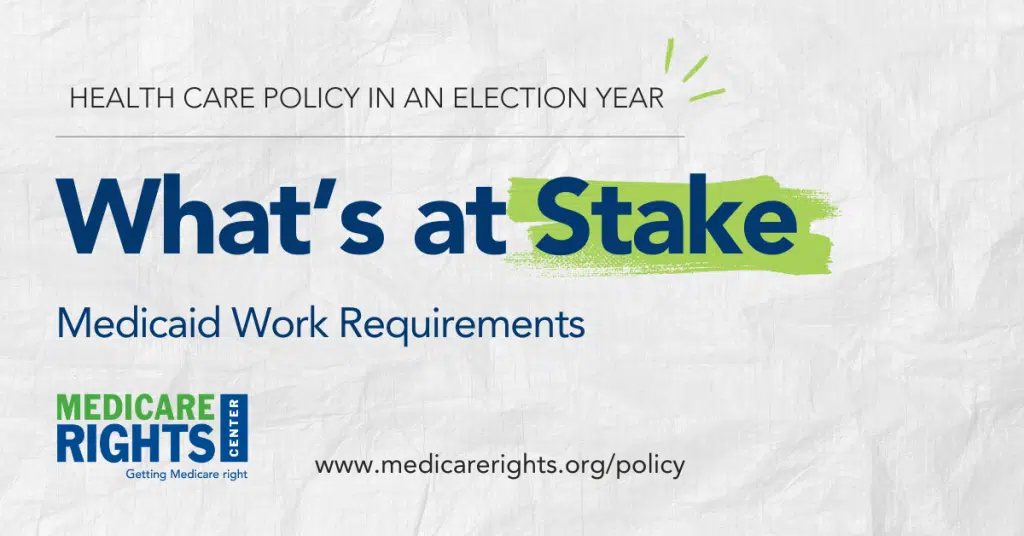Proposals to restructure Medicaid’s financing often recommend transforming the program from a guaranteed benefit to a fixed payment system, coupled with new limitations on costs or care. Such changes can put access to care at risk, especially for older adults and people with disabilities.
Read More
Many states have expanded coverage and care through Medicaid 1115 waivers, but some have attempted to use them to limit eligibility or restrict coverage, which could prevent people from accessing needed care.
Read More
State and federal support for conditioning Medicaid eligibility on compliance with monthly employment and reporting requirements persists, with strategies like 1115 waivers and statutory changes among the most prominently discussed. Such requirements create unnecessary barriers to care while increasing the administrative burden for enrollees and states.
Read More
In 2022, the New York State Department of Health (NYSDOH) released its Dual Eligible Integrated Care Roadmap, which outlined the state’s many priorities for improving integrated care for those dually eligible for Medicare and Medicaid.[i] By promoting integrated care for duals, they hoped to improve health outcomes, enhance member satisfaction, and reduce costs. One of the most ambitious goals was a 250% increase in the number of dually eligible individuals receiving integrated care through an aligned contract—meaning that the individual’s Medicare and Medicaid benefits are provided by the same company—by the end of 2023. These aligned contracts include the state’s Integrated Benefits for Dually Eligible Enrollees (IB-Dual) program and Medicaid Advantage Plus (MAP) plans.
Read More
Last year, New York State passed a landmark budget that expanded income eligibility for Medicare Savings Programs (MSPs), a long-overdue reform that the Medicare Rights Center championed alongside partner organizations, with the goal of increasing health access and economic security. Upon taking effect in January 2023, this expansion immediately made around 300,000 additional New Yorkers eligible for MSPs, programs that help enrollees afford Medicare premiums and other costs, and lead to automatic enrollment in the federal Extra Help drug subsidy.
Read More
Around half of people with Medicare get their health coverage from Original Medicare and the other half from Medicare Advantage, also known as a Medicare private health plan or Part C. Individual needs, preferences, and priorities typically guide these enrollment choices. This fact sheet outlines key considerations beneficiaries often keep in mind when deciding between the two coverage pathways.
Read More
Created in 1965, Medicare initially included Inpatient/Hospital insurance (Part A) and Outpatient/Medical insurance (Part B) and paid providers directly on a fee-for-service basis. The program has seen many legislative reforms over the years, including the addition of Medicare Advantage (Part C) in 1996. Although this change formally allowed enrollees to receive their Medicare benefits from a private insurance plan that contracts with the federal government, health plans have long played an important role in Medicare. In this fact sheet, we trace that evolution.
Read More
Many people can struggle to choose a Medicare Advantage plan that best meets their needs. For both newly eligible enrollees and those re-evaluating their options, the plan comparison process can be complex and burdensome, undermining active, informed coverage choices. Once enrolled, these decisions and Medicare Advantage-specific features—such as restrictions on providers and barriers to services—may limit enrollee access to care in unanticipated and harmful ways. Learn more about the beneficiary experience with Medicare Advantage in this fact sheet.
Read More
Under Original Medicare, Medicare pays providers a fixed rate for each service rendered to enrollees. By contrast, Medicare pays private Medicare Advantage plans a fixed monthly rate for each enrollee; the plans then pay providers to deliver care. The Medicare Advantage payment rates are set annually through a complicated series of determinations and adjustments that have significant bearing on Medicare financing. In this fact sheet, we review those processes and impacts.
Read More
Flaws in the Medicare Advantage payment formula yield inflated plan payments that grow with enrollment. Plans use these additional dollars to offer services Original Medicare does not cover. They heavily and successfully market these “supplemental benefits,” boosting enrollment and triggering even more overpayments. Plans invest those funds to attract more enrollees, and the cycle begins again. This fact sheet explains this harmful pattern and what it means for Medicare solvency.
Read More



